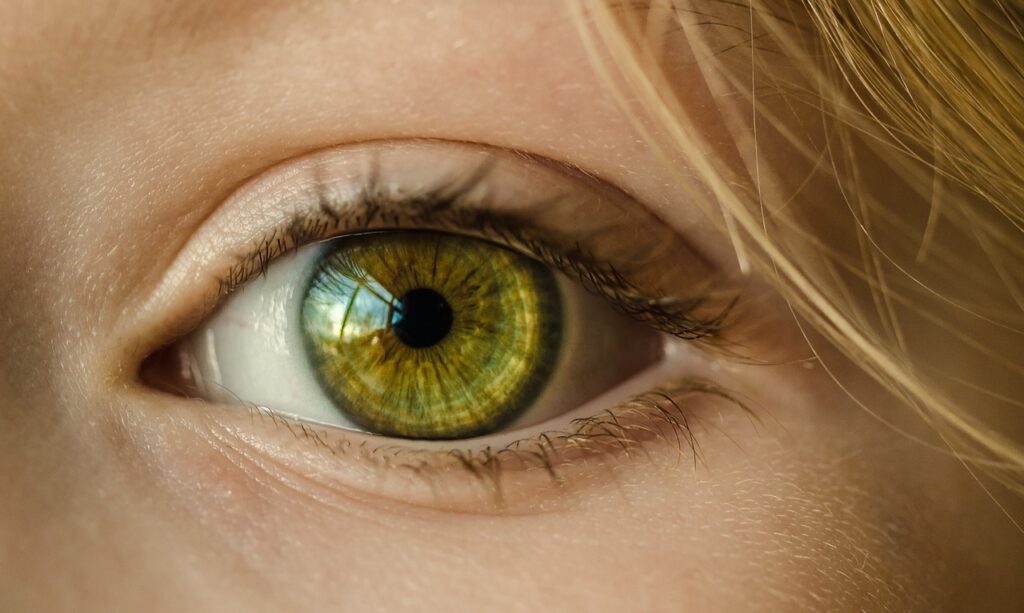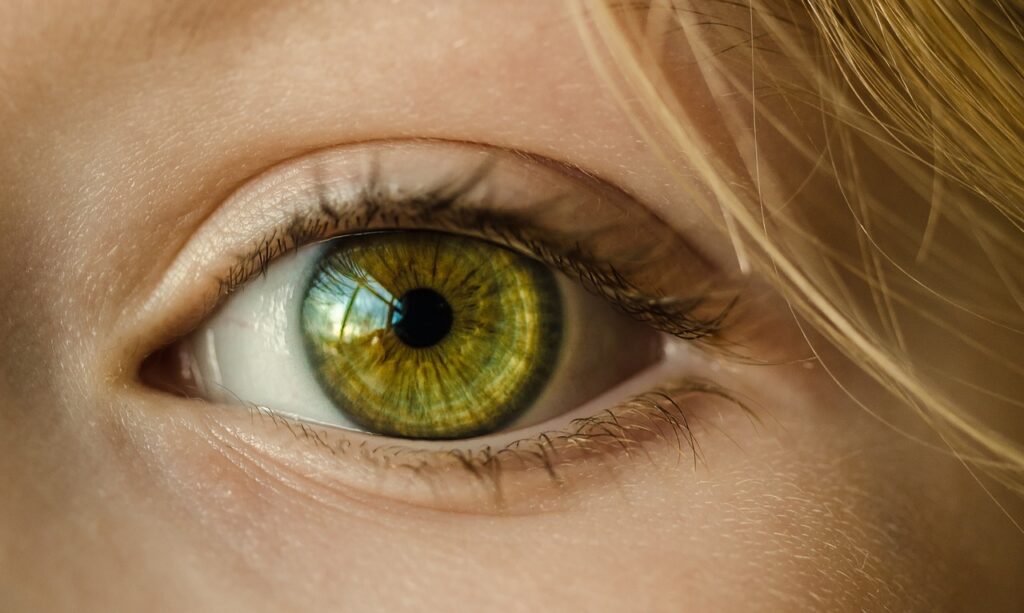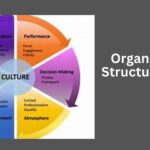In this Article; • 20 Things You Do That Can Damage Your Sight • Tips for Proper Eye Care

Our eyes are incredibly delicate and vital organs that allow us to perceive and experience the world around us. However, many of us take our vision for granted and inadvertently engage in habits and activities that can harm our eyesight over time.
In this article, we will explore 21 common things you do that can damage your sight and discuss tips to protect and preserve your precious vision.
1. Digital Eye Strain
Spending long hours in front of screens, whether for work or leisure, can lead to digital eye strain. Dry eyes, headaches, and impaired vision are some of the symptoms.
2. Blue Light Exposure
Exposure to excessive blue light emitted by digital screens can disrupt sleep patterns and potentially damage retinal cells. Blue light filters and screen time management can help reduce this risk.
3. Failure to go for Eye Checkups
Failing to schedule regular eye exams can result in undetected eye conditions, including glaucoma and cataracts. Routine check-ups can help identify and treat issues early.
4. Cigarette Smoking
Smoking cigarettes increases the risk of eye diseases like age-related macular degeneration (AMD) and cataracts. The harmful effects extend to both smokers and those exposed to secondhand smoke.
5. Eating Unhealthy Diets
Diets lacking essential nutrients like vitamins A, C, and E can harm eye health. Consuming a balanced diet rich in fruits, vegetables, and omega-3 fatty acids can promote healthy vision.
6. Frequent Eye Rubbing
Frequent eye rubbing, especially with dirty hands, can introduce infections and cause corneal abrasions. Gentle cleaning with a damp cloth is a safer alternative.
7. Sun Exposure
Exposure to ultraviolet (UV) rays without proper protection can increase the risk of eye conditions like cataracts and photokeratitis. Even on cloudy days, it’s important to wear UV-protective sunglasses.
8. Inadequate Sleep
Lack of sleep can lead to bloodshot eyes, eye twitching, and reduced focus. Prioritizing quality sleep can benefit both your overall health and your eyes.
9. Negligence on Eye Protection at Work
Neglecting to wear protective eyewear in hazardous work environments can lead to eye injuries. Safety goggles and shields are essential for preventing accidents.
10. Expired Eye Drops or Contact Lens Solutions
Using expired eye drops or contact lens solutions can lead to infections or worsening eye conditions. Verify expiration dates often and adhere to recommended storage practices.
11. Dependency on Eye Drops
Excessive use of over-the-counter eye drops can lead to dependency and worsening symptoms. Consult an eye care professional for appropriate treatment and guidance.
12. Effects on Vision
Heavy alcohol consumption can lead to nutritional deficiencies and increase the risk of conditions like macular degeneration. Moderation is key.
13. Diabetes and High Blood Pressure
Uncontrolled diabetes and high blood pressure can damage blood vessels in the eyes, leading to diabetic retinopathy and hypertensive retinopathy. Regular medical management is crucial.
14. Poor Contact Lens Care
Neglecting proper contact lens hygiene can result in eye infections and discomfort. Follow your optometrist’s recommendations for cleaning and wearing schedules.
15. Allergic Reactions
Seasonal allergies can lead to itchy eyes and excessive rubbing, potentially causing irritation and injury. Consult an allergist for effective allergy management.
16. Dehydration and Dry Eyes
Inadequate water intake can lead to dry eyes, affecting comfort and vision. Staying well-hydrated supports overall eye health.
17. Stress and Eye Health
Eye strain and tension can be exacerbated by chronic stress. Stress management techniques, such as relaxation exercises and mindfulness, can benefit eye health.
18. Ignoring Eye Symptoms
Delaying seeking medical attention for eye symptoms like sudden vision changes, floaters, or eye pain can lead to more severe issues. Prompt consultation with an eye care specialist is essential.
19. Genetic Predisposition
A family history of eye conditions, such as glaucoma or AMD, can increase your risk. Regular eye exams and lifestyle modifications can mitigate these risks.
20. Sports and Recreational Activities
Engaging in sports or activities without protective eyewear increases the risk of eye injuries. Ensure appropriate eye protection is worn during such endeavors.
21. Contact Lens Maintenance
Reusing old or dirty contact lenses can lead to eye infections and discomfort. Adhere to recommended lens replacement schedules and proper cleaning routines.
Tips for Proper Eye Care
Taking care of your eyes is essential for maintaining good eye health and preventing vision problems. Here are eight tips on how to take care of your eyes:
1. Eat a Balanced Diet
Consume a diet rich in fruits and vegetables, especially those high in vitamins A, C, and E, as well as minerals like zinc. To keep your eyes healthy, you need to consume these nutrients.
2. Maintain Hydration
Keep your body and eyes well-hydrated by drinking lots of water. Dehydration can lead to dry eyes, which can be uncomfortable and potentially harmful.
3. Protect Your Eyes from UV Rays
Wear sunglasses that block both UVA and UVB rays when you’re outdoors, even on cloudy days. The risk of cataracts and other eye disorders might rise with prolonged UV radiation exposure.
4. Follow the 20-20-20 Rule
If you spend a lot of time looking at screens (computers, smartphones, tablets), practice the 20-20-20 rule. Every 20 minutes, take a 20-second break and look at something at least 20 feet away to reduce eye strain.
5. Get Regular Eye Checkups
Make an appointment with an optometrist or ophthalmologist for routine eye examinations. These exams can detect vision problems and eye diseases early, allowing for timely treatment and prevention.
Conclusion
Our eyes are irreplaceable, and caring for them should be a top priority. Recognizing the habits and activities that can damage your sight is the first step in preserving your vision for years to come.
By incorporating healthy lifestyle choices, regular eye exams, and proper eye care practices, you can protect your eyes and maintain optimal visual health throughout your life. Remember that your eyes are a precious gift, and their well-being is worth every effort.






